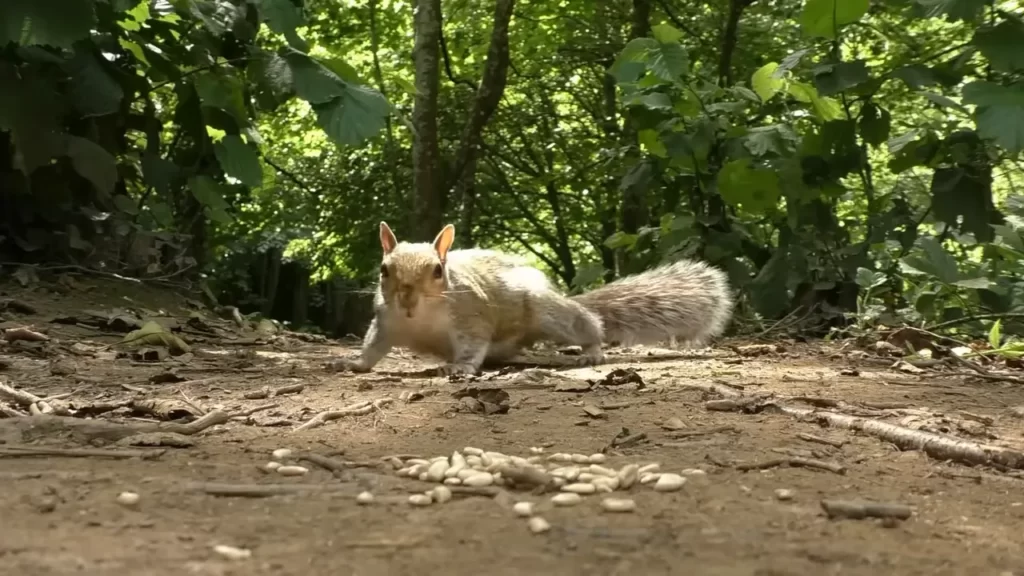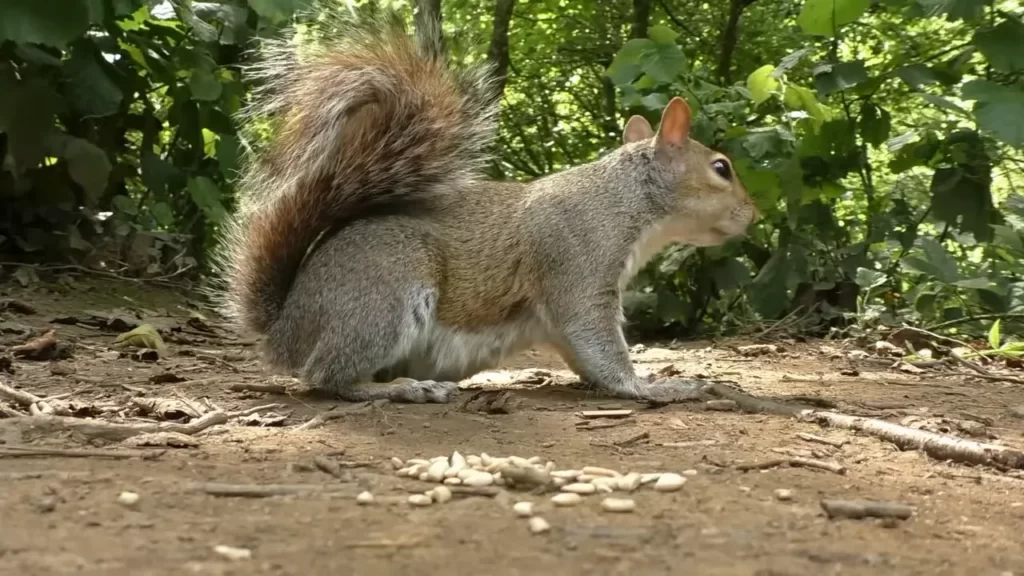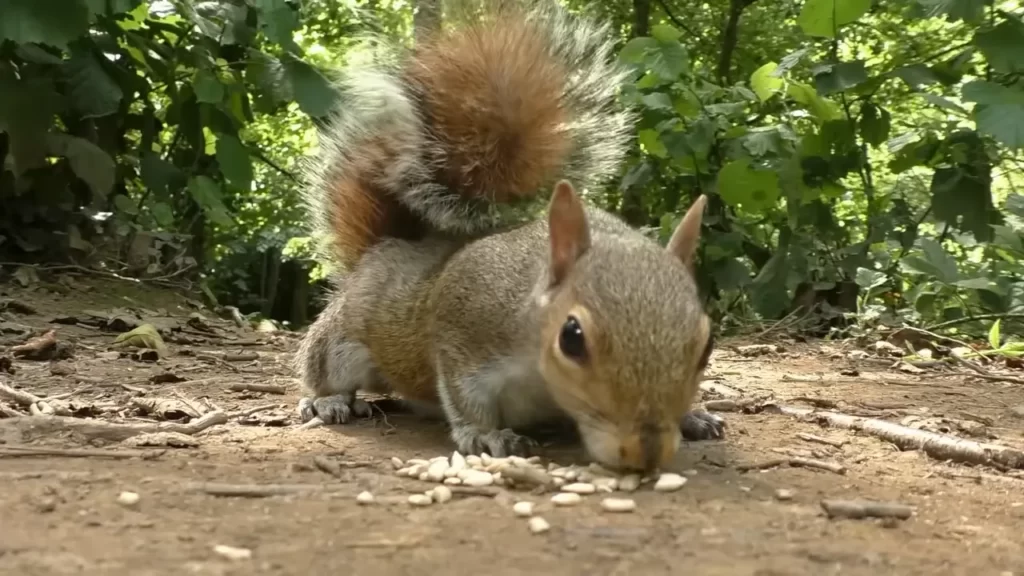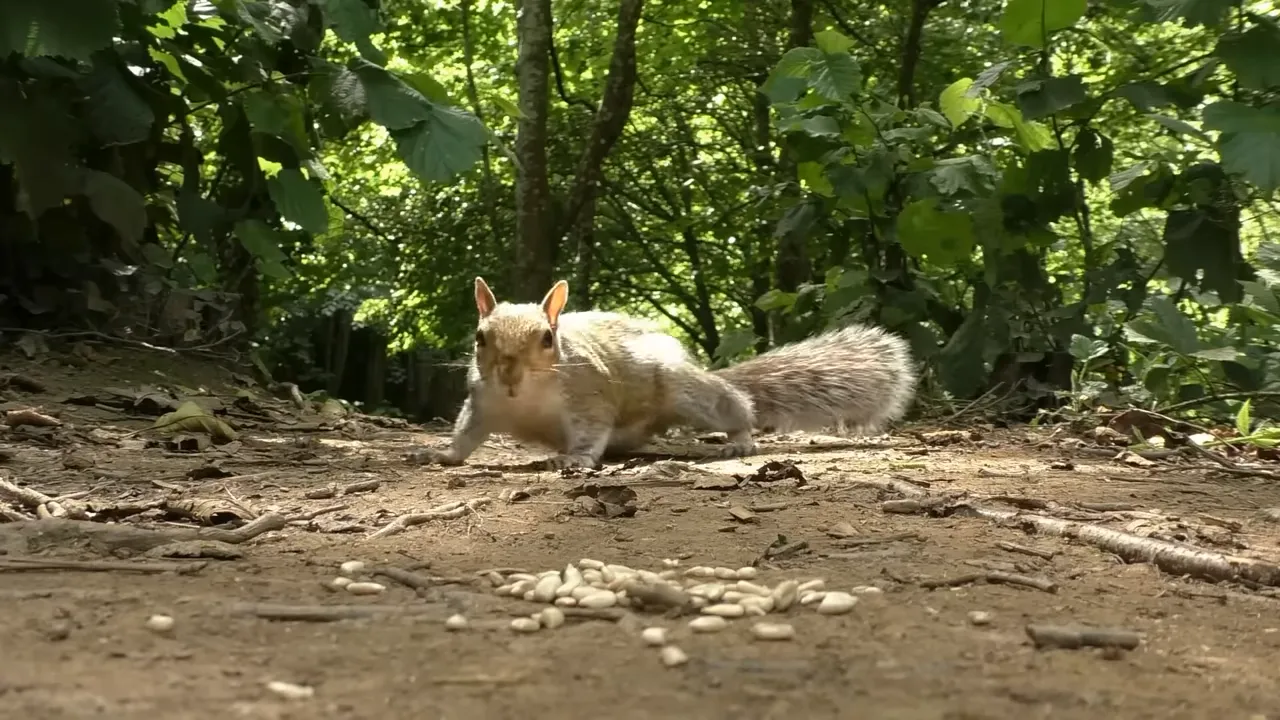Squirrels, with their bushy tails and nimble antics, may appear adorable at first glance. However, for many homeowners, they present an ongoing challenge as they dig up gardens, raid bird feeders, and find their way into attics. Finding a reliable and humane method to deter these small creatures is often on the agenda for those who wish to protect their property.
Do fake snakes effectively keep squirrels at bay? The simple answer is yes. These faux predators, when strategically placed, can serve as an efficient deterrent. The innate fear of snakes, embedded deep within the squirrel psyche, makes this method a preferred choice for many.
The age-old game of predator and prey shapes the behavior of many animals, including squirrels. This built-in survival instinct drives them to avoid potential threats, making certain deterrents particularly effective.
The Squirrel Dilemma
Squirrels are charming creatures, often seen darting around parks, woods, and even our backyards. Their swift movements and playful antics make them a delight to observe. Yet, for many homeowners, the relationship with these agile rodents isn’t so rosy.
Common Issues with Squirrels
Squirrels, although undeniably cute, can be a significant nuisance. Gardens often bear the brunt of their foraging habits. They dig up bulbs, nibble on young shoots, and even munch on ripening fruits and vegetables. This not only destroys the hard work of passionate gardeners but can also lead to substantial financial loss.
Homes aren’t safe from squirrel invasions either. Attics and lofts offer a warm, safe haven, especially during colder months. Here, they might gnaw on wires, woodwork, and insulation, causing potential fire hazards and structural damage.
Fake Snakes as Deterrents
For those seeking non-lethal solutions to the squirrel dilemma, fake snakes have emerged as a popular choice. But what’s behind this tactic?
Why Squirrels Fear Snakes?
It’s all about survival. The natural instinct of any prey species is to steer clear of predators. Snakes are known predators of small mammals, including squirrels. Over eons, squirrels have developed a deeply ingrained fear of these reptiles to ensure their survival. This fear is instinctual and not based on past experiences.

How Effective are Fake Snakes?
Leveraging this innate fear, homeowners place fake snakes strategically in gardens and around properties. When squirrels see these replicas, their immediate response is to flee. Many individuals have found success using this method, particularly when they:
- Change the snake’s position regularly.
- Ensure the fake snake is visible and not obscured by grass or other objects.
- Use realistic-looking snake replicas.
Proper Placement
Placing the snake correctly is vital. A hidden snake won’t deter squirrels, and a too-obvious one might soon be recognized as a fake. The key is to strike a balance. Place the snake in areas where squirrel activity is highest, ensuring it is partly concealed yet noticeable. Periodically moving the snake also prevents squirrels from recognizing the ruse.
Pros and Cons
Like any deterrent method, using fake snakes has its advantages and potential downsides.
Advantages of Using Fake Snakes
- Cost-effective: Once purchased, they can be used repeatedly.
- Environmentally friendly: No chemicals or toxins are released.
- Humane: Does not harm or kill the squirrels.
Potential Drawbacks
- Habituation: Over time, if the snake isn’t moved, squirrels might recognize it as harmless.
- Not 100% foolproof: Some daring squirrels might still venture close.

Other Deterrent Methods
While fake snakes are effective to an extent, diversifying deterrent strategies can offer more comprehensive protection.
Ultrasonic Devices
These devices emit a high-frequency sound, inaudible to humans but distressing for squirrels. When placed correctly, they can effectively keep these rodents at bay. They’re safe, humane, and don’t harm the environment.
Natural Predators
By encouraging the presence of natural predators like hawks or owls, squirrels can be deterred. Birdhouses or perches can invite these predators into your yard. However, this method requires a delicate balance, ensuring the predator doesn’t become a nuisance itself.
Spices and Plant Deterrents
Certain spices like cayenne pepper sprinkled around plants can deter squirrels. Similarly, some plants, when placed strategically, can repel these creatures. Marigolds, for instance, are often touted as a natural squirrel deterrent.
Making a Choice
Selecting the best deterrent for squirrels is crucial for garden enthusiasts and homeowners alike. Each individual’s needs differ, and so does the effectiveness of each method. Your choice is pivotal to ensuring harmony between nature and your property.
Considerations Before Choosing a Deterrent
Making a decision requires careful thought. Before settling on a particular deterrent, weigh the following factors:
- Safety: Ensure the method is safe for both squirrels and the environment.
- Budget: Consider the costs of installation, maintenance, and potential replacements.
- Time: Evaluate how much time you can dedicate to setting up and maintaining the deterrent.
- Space: Large gardens or homes might need more than one deterrent method or device.

Ensuring Effectiveness
An efficient deterrent is more than just its purchase or setup. It’s about consistent performance and long-lasting results. Here’s how you can achieve that:
- Regular Observation: Keep an eye on the squirrel activity. Note any changes or new patterns.
- Feedback: Ask neighbors or friends who have tried similar methods. Their experiences can guide your adjustments.
- Stay Updated: New deterrents or methods are frequently introduced. Stay informed to make the best use of the latest solutions.
Practical Tips
Practicality is vital. The methods chosen should be feasible for long-term use. You don’t want a solution that’s great on paper but a hassle in real life. Here are some tips to ensure practicality:
Checking and Maintenance
For those using fake snakes, routine check-ups are essential. A weathered or damaged snake might lose its realistic appearance, reducing its effectiveness. Ensure:
- The snake remains visible and not completely covered by debris or leaves.
- It’s shifted to different locations regularly.
- It retains its original color and doesn’t fade due to weather conditions.
Alternating Deterrents
Squirrels are smart. Over time, they might understand that a fake snake or any other deterrent poses no real threat. That’s where the concept of alternating comes in. By switching between different deterrent methods, the squirrels remain on their toes, never really settling or becoming familiar with a particular method. Some tips:
- If you’re using fake snakes, occasionally add another deterrent like ultrasonic devices.
- Rotate between plant deterrents. For example, after using marigolds for a month, you might want to try another plant known to deter squirrels.
- Use natural predators intermittently. A fake owl or hawk can be a great addition alongside your snake.
Why Alternating is Vital
Consistency is great, but when dealing with adaptable creatures like squirrels, a change in strategy keeps them at bay. Adaptation is a survival instinct. Over time, when squirrels are exposed to a single method continuously, they might lose their initial fear.
Alternating keeps this adaptation at bay. By introducing new deterrents or occasionally switching them, you’re playing on the unpredictability factor. This ensures that your garden or home remains squirrel-free, and the creatures themselves are safe and unharmed.
Frequently Asked Questions
How long do fake snakes deter squirrels?
Over time, squirrels might recognize a non-moving snake as harmless. Regular repositioning of the fake snake every few days can maintain its effectiveness.
Are there specific types of fake snakes that work best?
Opt for realistic-looking rubber or plastic snakes, preferably those with a natural color pattern resembling local snake species.
Will fake snakes scare away other animals too?
Yes, many animals have an instinctual fear of snakes. Using them can deter not just squirrels but also birds, rabbits, and some other critters.
Can I use fake snakes in combination with other deterrent methods?
Absolutely! Combining various deterrent strategies can increase overall effectiveness and prevent squirrels from becoming accustomed to any single method.
Conclusion
While squirrels can be charming in their natural habitat, their presence in our gardens and homes can lead to several challenges. Fake snakes, owing to the deep-rooted fear squirrels harbor towards these reptiles, offer a viable solution for homeowners. By employing this tactic, along with occasional modifications, a harmonious balance between nature and residential spaces can be achieved.
As we delve deeper into urban life, finding non-harmful, effective methods to deal with wildlife becomes crucial. By understanding the instincts and behaviors of animals like squirrels, we can create strategies that work for both humans and wildlife. With a little creativity and patience, peaceful coexistence is indeed possible.
